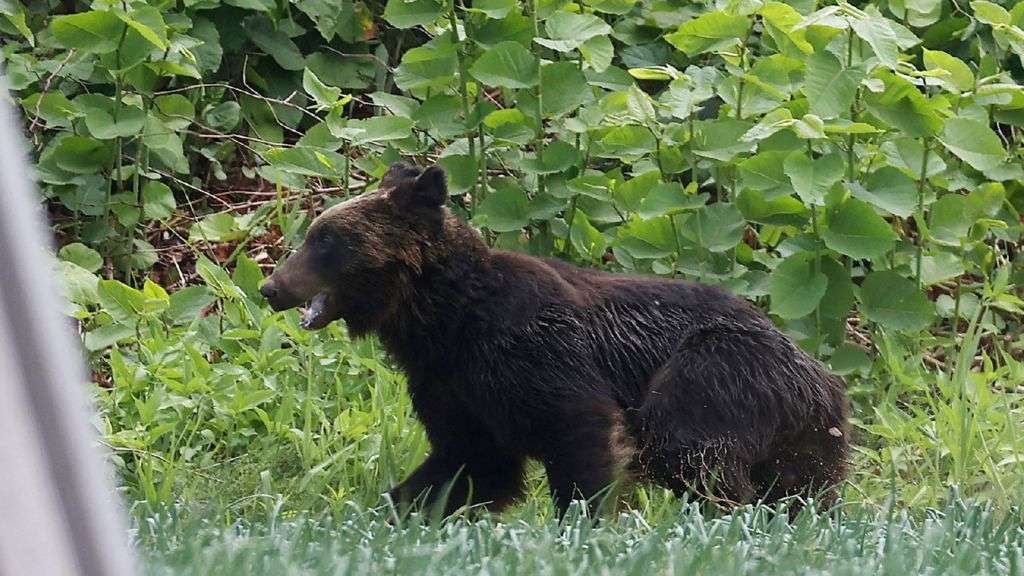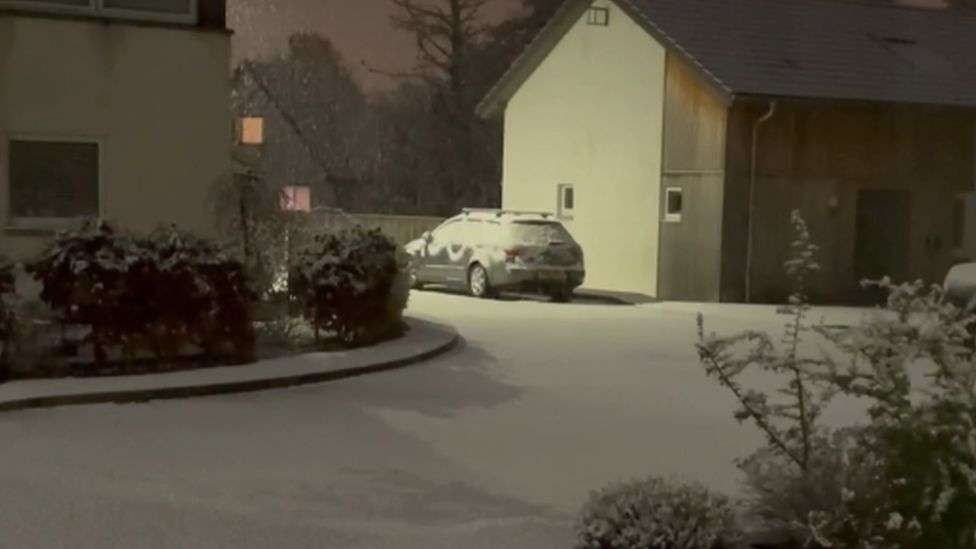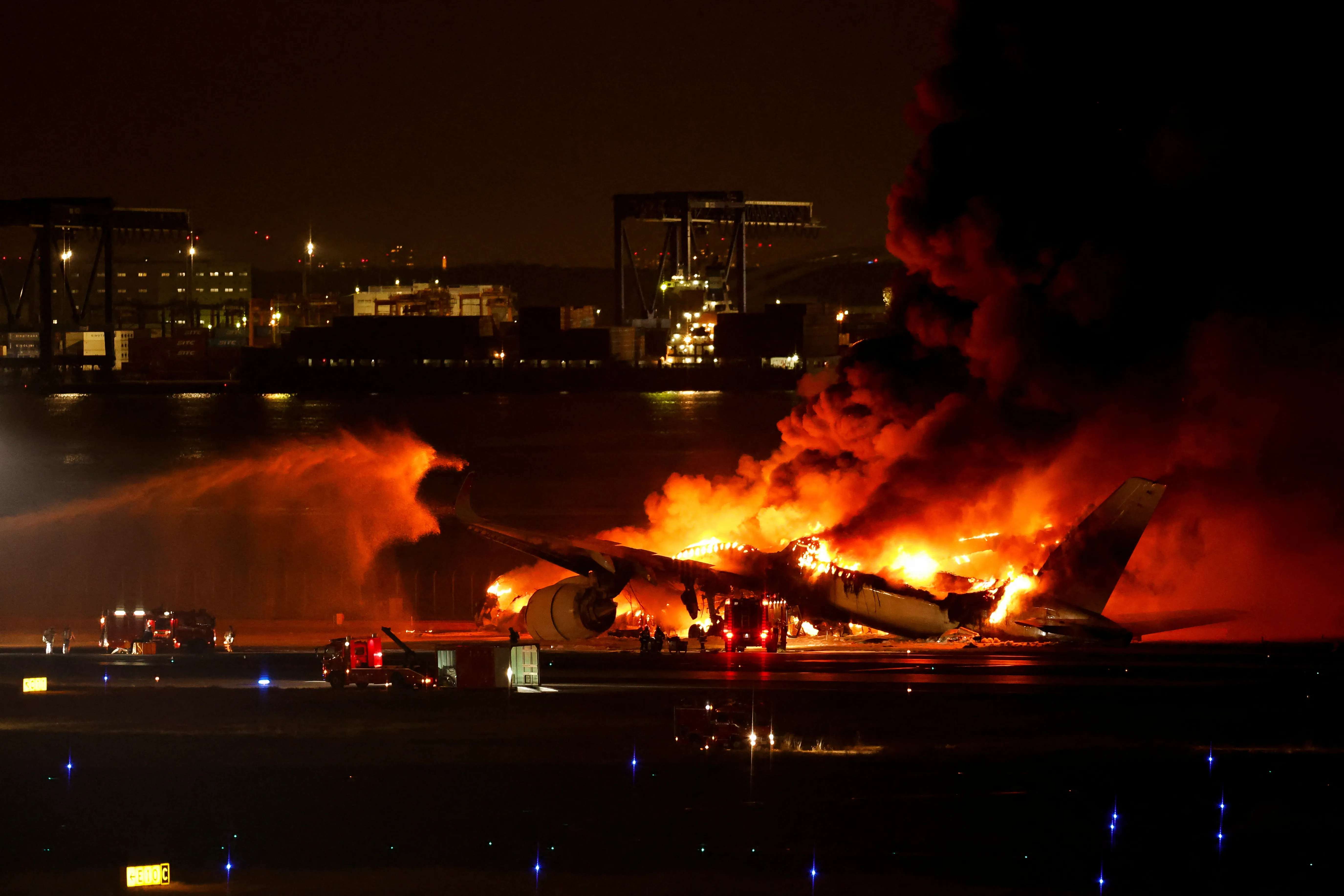Facing an alarming rise in bear attacks, Japan wants to make it easier to shoot the animals in residential areas - but hunters say it is too risky.
In the year to April, there were a record 219 bear attacks in the country - six of them fatal, according to official data.
Deadly attacks have continued to occur in recent months, as bears increasingly venture into populated areas. Some are now even thought to see humans as prey.
Bear numbers have revived as Japan's human population ages and shrinks, especially outside cities. The consequences have been dangerous, although usually resulting in injury not death.
Under the current law, licensed hunters can fire their guns only after the approval of a police officer.
The government plans to revise the law at its next parliamentary session so the weapons can be used more freely. For instance, hunters will be allowed to shoot if there is a risk of human injury, such as when a bear enters a building.
But hunters are wary. "It is scary and quite dangerous to encounter a bear. It is never guaranteed that we can kill a bear by shooting," said Satoshi Saito, executive director of the Hokkaido Hunters' Association.
"If we miss the vital point to stop the bear from moving... it will run away and may attack other people," he added. "If it then attacks a person, who will be responsible for that?"
Hokkaido has come to exemplify Japan's growing bear problem.
The country's northernmost major island is sparsely populated - but its bear population has more than doubled since 1990, according to government data. It now has around 12,000 brown bears, which are known to be more aggressive than black bears, of which there are around 10,000 in Japan by experts' estimates.
Local governments have tried different strategies to keep bears away.
Some have turned to odd guardians - robot wolves, complete with red eyes and spooky howls, while elsewhere in the country they are testing an artificial intelligence warning system.
The town of Naie in Hokkaido has been trying to hire hunters for 10,300 yen ($64; £50) a day to patrol the streets, lay traps and kill the animals if necessary.
But there are few takers - it's a high-risk job, the pay is not attractive enough and many of the hunters are elderly.
"It is not worth the trouble because confronting a bear will put our lives on the line," a 72-year-old hunter from the area told The Asahi Shimbun newspaper, likening an encounter with a brown bear to "fighting a US military commando".
In May, two police officers in northern Akita prefecture were seriously injured by a bear while trying to retrieve a body from the woods after a suspected fatal bear attack.
"The bears know humans are present and attack people for their food, or recognise people themselves as food," local government official Mami Kondo said.
"There is a high risk that the same bear will cause a series of incidents."
As bear numbers have grown, more of them have moved from the mountains into flatlands closer to human populations. Over time, they have become used to the sights and sounds of humans, and less afraid of them.
There are also fewer humans around as young people move to big cities, leaving whole towns nearly empty. When bears do encounter humans, it can turn violent.
"Bears that enter urban areas tend to panic, increasing the risk of injury or death to people," said Junpei Tanaka from the Picchio Wildlife Research Center in Japan.
Bear sightings and incidents usually happen around April when they awake from hibernation in search of food, and then again in September and October when they eat to store fat for the winter months.
But their movements have become more unpredictable as yields of acorn - the biggest food source for bears - fall because of climate change.
"This amendment to the law is unavoidable, but it is only a stopgap measure in an emergency," Mr Tanaka said.
Capturing and killing the animals is not the way forward, he adds. Rather, the government needs to protect the bears' habitat so they are not compelled to venture too far.
"In the long-term, it is necessary to implement national policy to change the forest environment, to create forests with high biodiversity."
He added that the government also needs to clarify who should take responsibility for bears that wander into residential zones - local officials or hunters.
"Ideally, there should be fully trained shooters like government hunters who respond to emergencies, but at present there are no such jobs in Japan."
Residential areas are a vastly different terrain for hunters, who are used to killing bears in unpopulated regions, Mr Saito said.
"If we don't shoot, people will criticise us and say 'Why didn't you shoot when you have a shotgun?' And if we shoot, I am sure people will be angry and say it might hit someone.
"I think it is unreasonable to ask hunters who are probably just ordinary salarymen to make such a decision."








